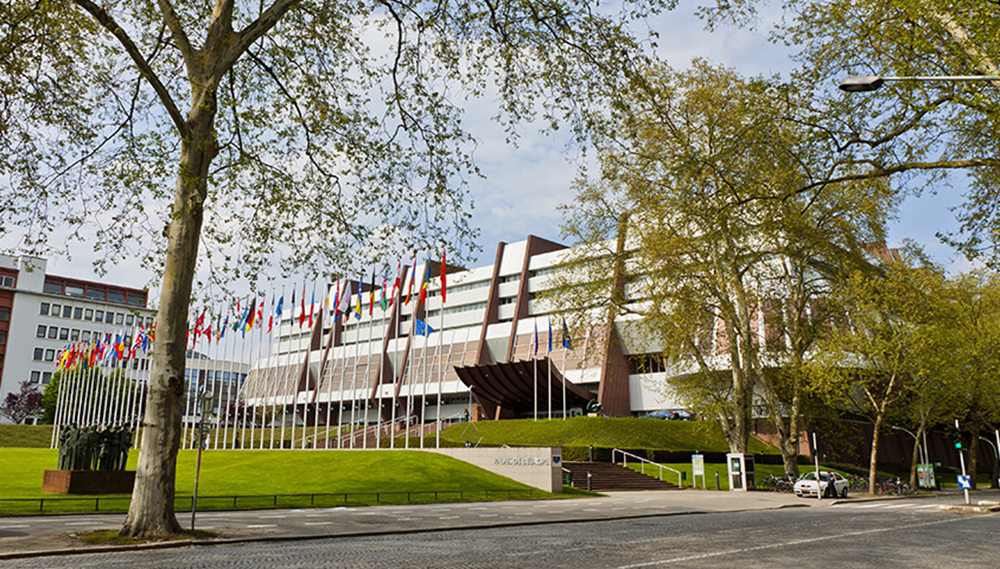
The Minister of Culture, Lina Mendoni, participated in the Ministerial Conference marking the 25th anniversary of the signing of the Council of Europe Landscape Convention, known as the “Florence Convention,” held in Florence and organized by the Council of Europe and the Italian Ministry of Culture.
Lina Mendoni, assessing the twenty-five years since its signing, noted: “The Convention has transformed the way we see and evaluate landscapes: not simply as a natural backdrop, but as a common good that determines our quality of life, our democracy, and our cultural heritage. It has inspired a generation of public policies rooted in community participation and the belief that the environment and culture are inextricably linked. At the same time, the Convention introduces the territorial dimension of human rights.”
The Minister of Culture referred to the Ministry of Culture’s Integrated Management Plans for our monuments, which are included in the UNESCO World Heritage List, which treat cultural property, the natural environment, and the local community as a unified and interdependent system.
“In Greece,” noted Lina Mendoni, “the protection of both the natural and cultural environment has long been enshrined in our Constitution. The Greek Archaeological Law establishes a comprehensive spatial framework that ensures that the management of monuments and their environment is a unified and living entity, recognizing that heritage cannot be preserved in isolation from the landscape that surrounds it. This is the principle on which our national program for the development and implementation of integrated management plans for UNESCO World Heritage sites in Greece is based.”
The Minister of Culture highlighted the decisive role of the Florence Convention in promoting the sustainable protection, management, and enhancement of landscapes, in light of the Reykjavik Declaration (2023) and the new Council of Europe Strategy for the Environment (2024–2030).
“Today,” said Lina Mendoni, “we are facing new challenges. The triple crisis—climate change, biodiversity loss, and pollution—is eroding not only ecosystems but also the cultural and social ties that distinguish landscapes. The question is no longer simply how to protect our landscapes, but how to revitalize them. The Reykjavik Declaration gave us a clear direction: To integrate human rights, democracy, and the rule of law into a new, coherent environmental vision for Europe. A vision in which landscape plays a central role.”
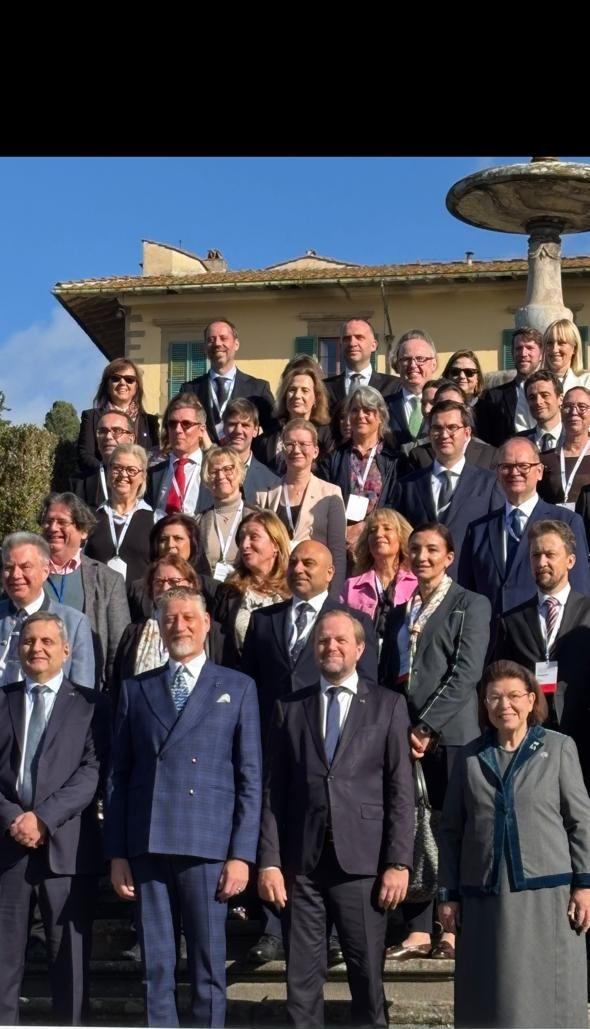
Twenty-five years after the Florence Convention, the Council of Europe must play a key role in drafting the next phase of the Convention.
The Greek Minister pointed out that the new approach must be based on three key pillars: “1. An integrated approach, utilizing the LINKED principles recently adopted by the Council of Europe, bringing together culture, nature, and landscape in a single, continuous policy framework, transcending the boundaries between them that sometimes exist only at the administrative level. 2. Innovation and participation. We must make use of digital mapping, landscape observatories, and participatory planning tools, not only to record change, but also to empower communities to envision their landscapes in the future. In Greece, the Ministry of Culture’s comprehensive plans for the management of UNESCO World Heritage sites and Natura 2000 areas already embody this philosophy: Heritage, ecology, and local living plans converge in a unified spatial vision. 3. In the development of a culture of care and health. The Recommendation on Landscape and Health, adopted earlier this year, shows the way: Healthy landscapes mean healthy people. This must become the cornerstone of Europe’s environmental democracy — where access to a quality landscape is recognized as a dimension of human well-being and dignity.
In conclusion, Lina Mendoni emphasized: “The future of the Florence Convention is not only about preservation, but also about the collective regeneration of our places. If we regenerate our landscapes with creativity and solidarity, we will also regenerate citizens’ trust in the very values of Europe.”
The Florence Ministerial Conference concluded with the adoption of a Declaration setting out the Council of Europe’s new strategic vision for the next phase of the Convention’s implementation, strengthening the link between landscape protection and human rights, democracy, and the rule of law.
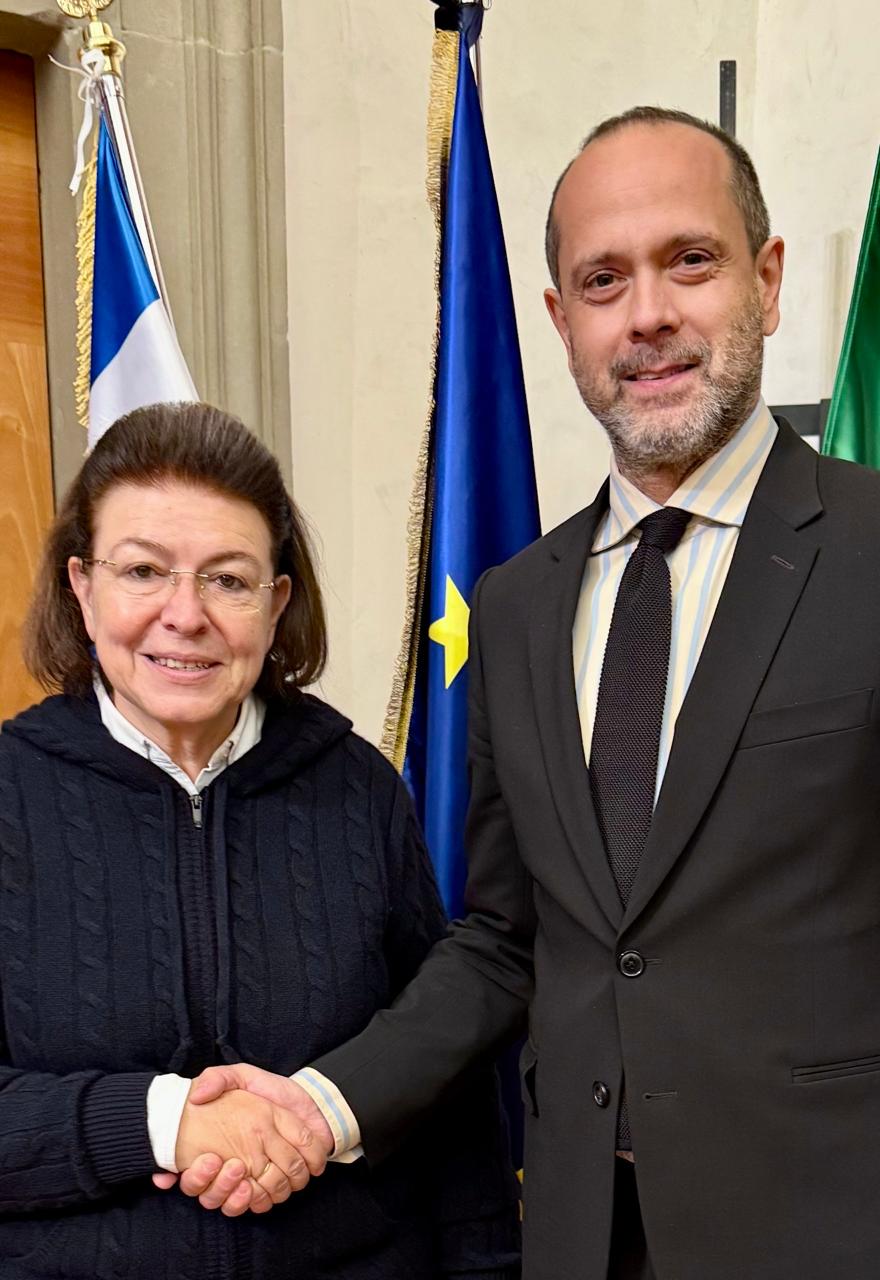
Lina Mendoni with Simone Verde, Director of the Uffizi Galleries
On the sidelines of the Conference, Lina Mendoni met with Minister of Culture Alessandro Giuli, confirming the particularly close cultural ties between the two countries and giving new impetus to cultural cooperation. The prospect of organizing archaeological exhibitions in both countries was discussed, including the exchange of the exhibitions “Cycladic Women” and “Women of Pompeii,” which are on display at the Archaeological Museum of Santorini and the Archaeological Park of Pompeii, respectively, as well as the organization of a joint exhibition on the “Myth of Europe.” . The joint organization of a festival of Mediterranean folk performing arts in Greece and Italy was also discussed, as well as the planned concert in Athens featuring songs from southern Italy. The Minister of Culture invited her counterpart to participate in the Ministerial Meeting of the Forum of Ancient Civilizations to be held in Athens on December 11-12, an invitation which the Italian Minister accepted.
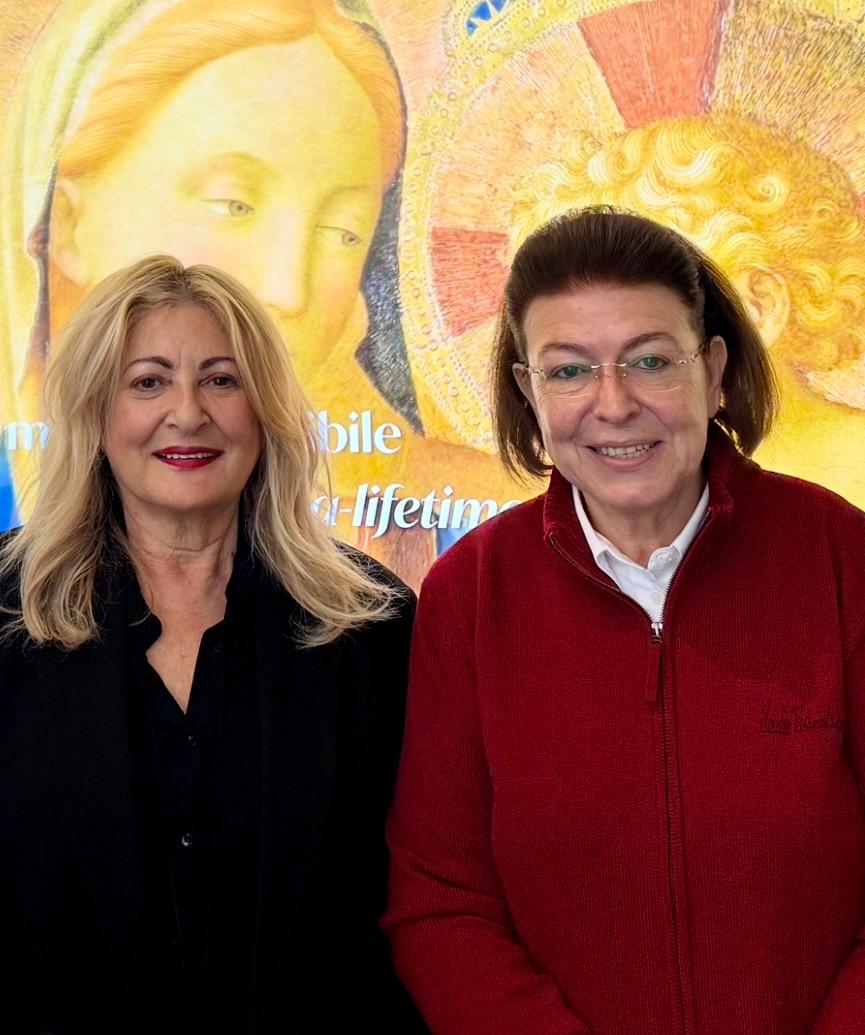
Lina Mendoni with Antonella Loiero, Executive Director of the Palazzo Strozzi Foundation
On the sidelines of the Conference, Lina Mendoni held meetings with Simone Verde, Director of the Uffizi Galleries, regarding the organization of joint exhibitions between Greek museums and the Uffizi, as well as with Antonella Loiero, Executive Director of the Palazzo Strozzi Foundation, regarding Greece’s participation in the planned Palazzo Strozzi exhibition entitled “Broken- Fragments,” which will open in Florence in September 2026.

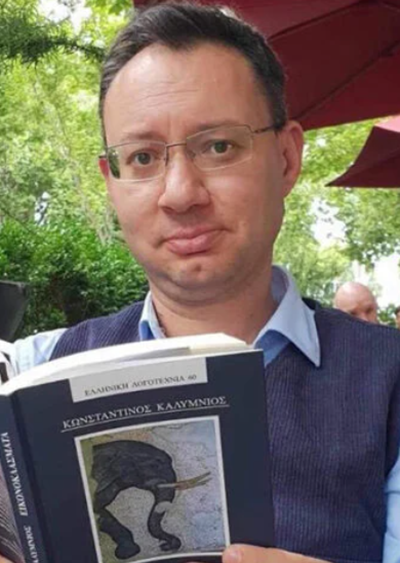


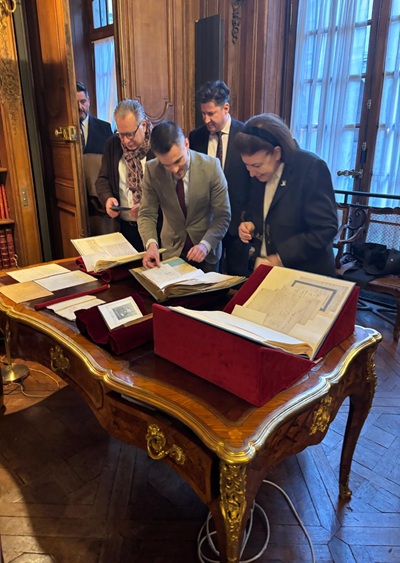


Leave A Comment